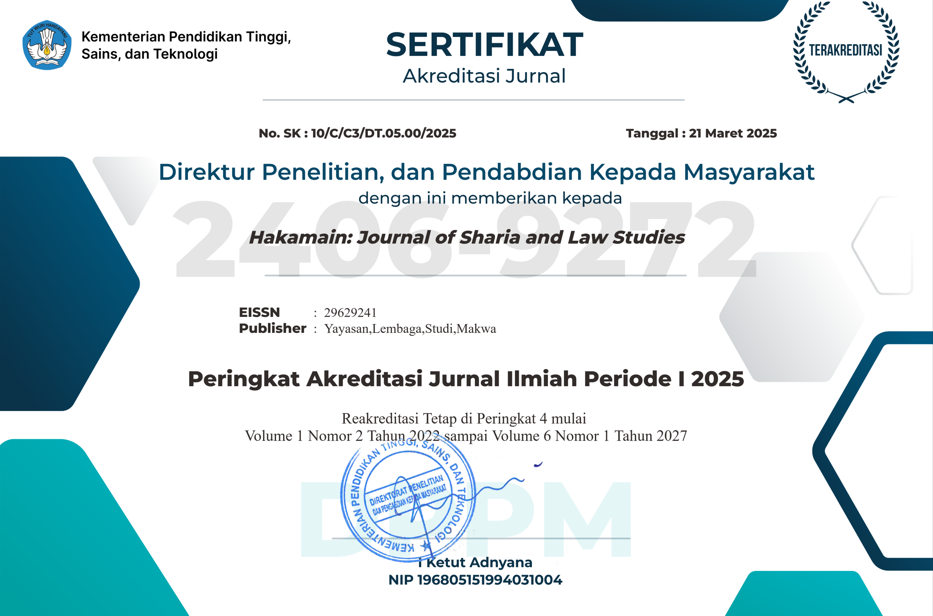Transformation of Digital Masculinity and Its Implications for Women's Rights in Divorce under Islamic Law
DOI:
https://doi.org/10.57255/hakamain.v4i1.1349Keywords:
Digital Masculinity, Divorce, Islamic Law, Women’s RightsAbstract
This study examines the evolving patterns of digital-era masculinity and their implications for marital dynamics and the protection of women’s rights in divorce under Islamic law, using Indonesia as a case study. While scholarship on gender and digitalisation has grown, little attention has been paid to how online platforms, social media norms, and digital economic roles are reshaping masculine identities in Muslim-majority contexts, particularly within the framework of Islamic family law. Adopting a qualitative methodology, the research draws on in-depth interviews with divorced women, legal practitioners, and religious court judges, alongside discourse analysis of digital media content. The findings reveal that the rise of “digitally empowered masculinity” is redefining household authority, financial obligations, and emotional engagement, influencing both marital conflict patterns and divorce proceedings. In many cases, shifts in gender dynamics—driven by digital income streams and online social interactions—have simultaneously expanded and constrained women’s ability to claim post-divorce rights, including nafkah iddah and mut’ah. These outcomes expose both legal and socio-cultural gaps in current Islamic family law practices, which often fail to keep pace with the realities of digitally mediated relationships. The study contributes theoretically by integrating gender studies, digitalisation scholarship, and Islamic legal discourse, and offers practical recommendations for religious courts, women’s advocacy networks, and policymakers to strengthen gender justice in the digital age.
Downloads
Published
How to Cite
Issue
Section
Citation Check
License
Copyright (c) 2025 Bahari Ali Albara, Muhammad Bakhrul Ilmi

This work is licensed under a Creative Commons Attribution-ShareAlike 4.0 International License.






